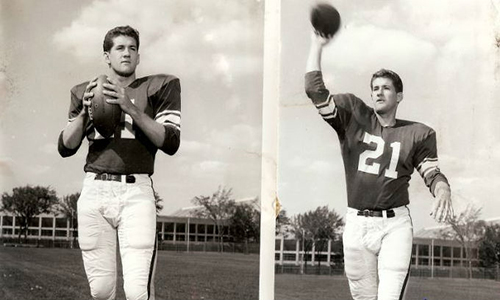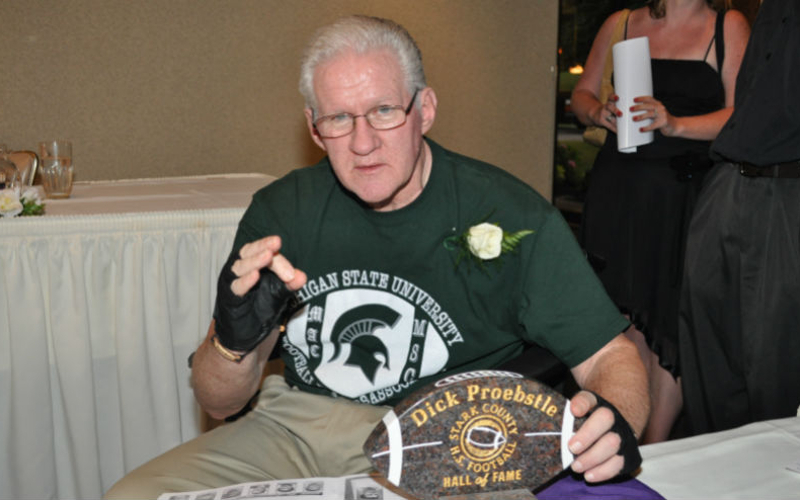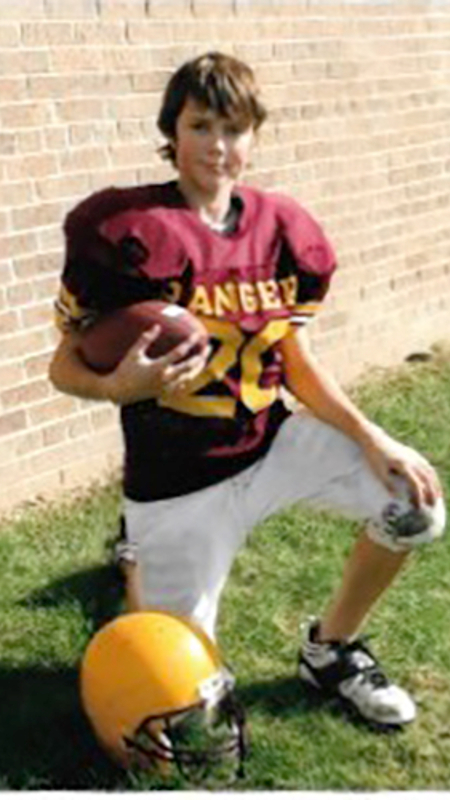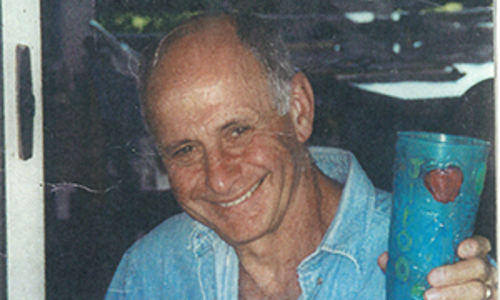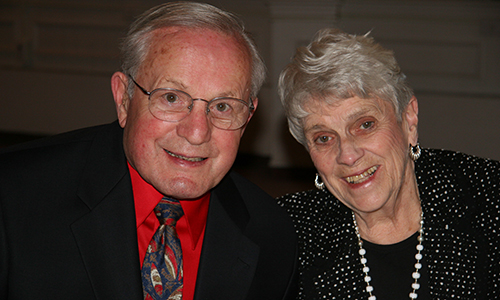 Jim Proebstle, Author of Unintended Impact, sat down with the family of John Polonchek to gain insight into his life and legacy.
Jim Proebstle, Author of Unintended Impact, sat down with the family of John Polonchek to gain insight into his life and legacy.
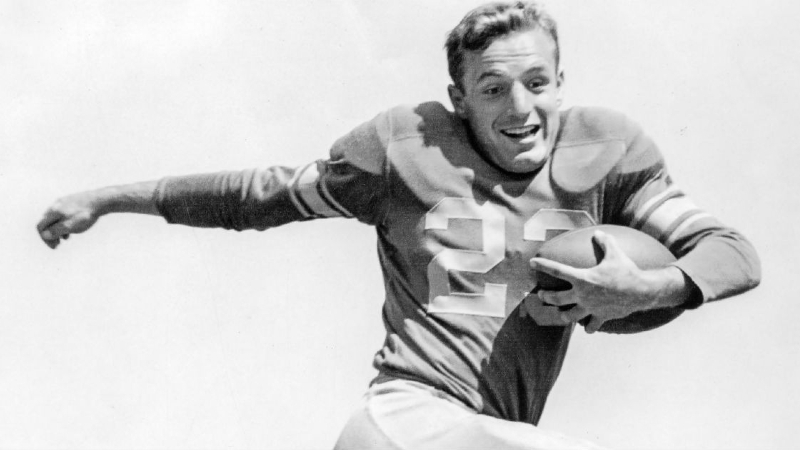
John immigrated to the United States from Granastov, Czechoslovakia with his family when he was a young boy. As he grew older it was his love for sports of any kind that helped him become a part of the American culture. That story built momentum with his talent as a halfback at Roosevelt H.S. in E. Chicago, IN, which led to a scholarship at Michigan State University. At Michigan State John was the first recipient of the Potsy Ross Award, an honor given to the football player making the most contributions to the team on the field, as well as in the classroom. After graduation, John joined the Air Force and after serving he returned to MSU to begin his coaching career. His talent for the coaching profession can only be properly described by a Google search that documents six years of college coaching and twenty-eight years of coaching in the NFL, AFL, and USFL (United States Football League), including coaching two teams in the Super Bowl (the Raiders in Super Bowl 2, and the Patriots in Super Bowl 20). His athletic talents and native intelligence gave John the opportunity to earn a college degree. Football was part of his essence and being, allowing John to build a career that was characterized by success at all levels and a lifestyle centered on his family and the sport. That passion for football and coaching came full cycle with the donation of his brain to the Boston University School of Medicine CTE Center after a bittersweet end when he passed away on January 26, 2015. It is his family’s intention that John’s contribution to football continue through the use of his brain in researching the long-term consequences of repetitive head impact through concussions.
Who was your dad outside football?
Joan, John’s wife of sixty-eight years, and he met while in the Air Force where she was an Air Force nurse. Afterwards, she quickly adjusted to his hard working life style of full-time coaching. Regardless of the time demands, he maintained his commitment to his faith, his friends and his family. His children describe their dad as gentle, friendly, quiet and humble. “He always wanted to know what he could do for us. It was never about dad’s accomplishments, but always about others.”
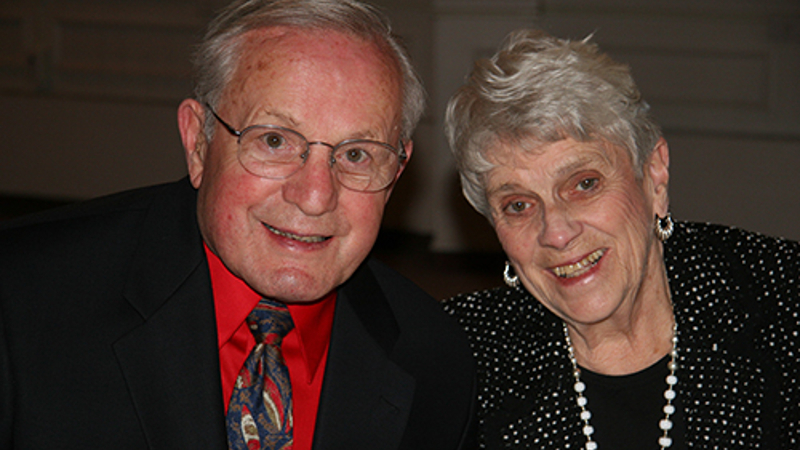
How did the topic of concussions and head contact come up during John’s coaching years?
The family looks back at the environment involving concussions as very different than what we think of today. “The topic of concussions didn’t come up,” Joan said although later expressed concern for the players and the possible long-term consequences of head trauma. Professional football bred a “tough as nails” attitude, which included a culture that concussions were part of the atmosphere, part of the expectations of the sport, especially during the early years of building a new league (AFL) without the big money. The evolution of equipment was thought to be of great benefit to the players as the physics (player size and speed) of the game changed. That idea was turned on its head with the Darryl Stingley/Jack Tatum collision at the Oakland Coliseum in 1978. Although controversial, the hit on Stingley, one of John’s players with the Patriots, was not against NFL rules at the time, as it was not helmet-to-helmet contact (it was a shoulder-to-helmet contact). No penalty was called on the play. Today, however, the NFL has banned all blows to the head or neck of a defenseless player, and has disallowed players to launch themselves in tackling defenseless players. With Darryl reduced to life as a paraplegic, the team was spooked. While concussion and head trauma protocols have improved none of the family members believe that the issue of player safety has been resolved.
In retrospect, there is no one incident that the family could recall that represented a marked change in John’s behavior. He just gradually withdrew into himself. The mental and cognitive preparation for the season was more time consuming resulting in several occasions where John spent the entire night preparing for the next day’s practices and upcoming games. After the end of the 1991 football season, he retired.
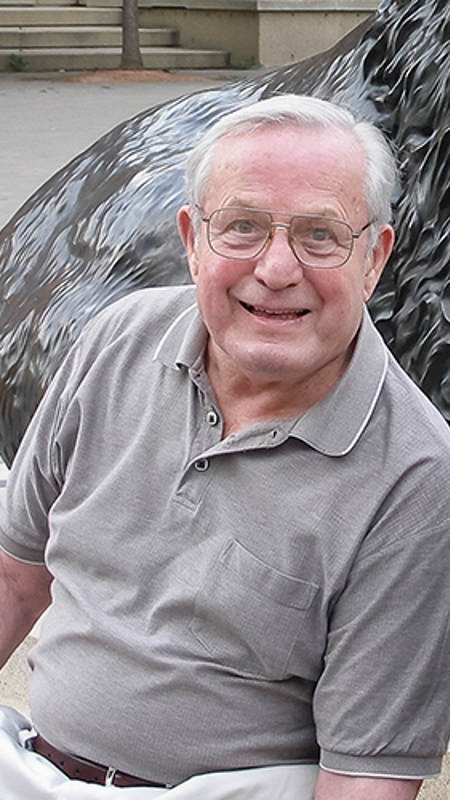
When did you notice that something was wrong with John? How did the symptoms progress?
During a family celebration in 1998 at an airport, the kids had engaged the parents in a clapping-coordination game requiring dexterity of hand movements. John had always been “mister motor skills” but he couldn’t keep up with the pattern of the game. His family noticed that John began to speak less frequently and was less involved in conversations when in a group, and that his prolific photographic skill just stopped. Problems with confusion led to a visit at Mass General in early 2000 with the preliminary diagnosis being a likely beginning stage of Alzheimer’s. The family never quite accepted that diagnosis. John never became aggressive and his personality stayed the same. Word search skills became challenging and daily living issues started to become evident. In time, more progressive signs presented themselves as he just talked less and less. He would just sit in a chair and watch football or any sport on TV for long periods of time. His memory declined to include a loss of recall of events that were very important to him. He was very happy to receive visitors while at the nursing home, but had no recall of who they were.
It was not a surprise to the family that when John’s brain was examined by Dr. Ann McKee there was no evidence of Amyloid protein stains typical of Alzheimer disease. There is satisfaction among family members that a correct diagnosis of CTE was determined so that a validation of the signs and symptoms they were seeing may lead to answers from a scientific standpoint so that others can benefit.
How has your attitude changed regarding football?
The family expressed concern about what’s happening to the player’s bodies. With the competitive culture of the professional game, “It’s just going to get worse.” Research, rule changes, precaution through better officiating are long overdue, but changes are not happening fast enough. “If we can put people into space and protect racecar drivers in collisions; why can’t we develop equipment to protect our players better. We have a long way to go. And, the issue is compounded further when you consider the players at the college, high school and youth levels. Flag football might be a much better alternative until a later age. Some of the hits are gut retching and make you cringe. Risk factors are increasing and we have a long way to go to make the game safer for players.”
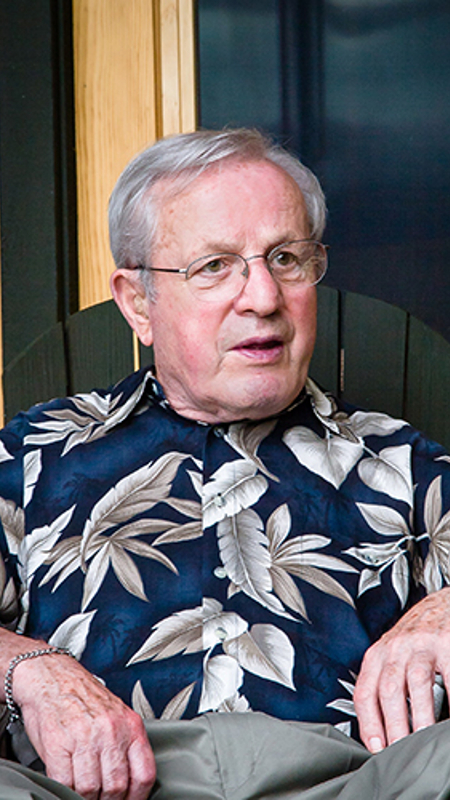
How was your experience working with Concussion Legacy Foundation (CLF) and Boston Medical?
“Fantastic, available, helpful,” were the first words Joan used to describe the Concussion Legacy Foundation. “Lisa was indispensable in coordinating research with everyone in different places. The medical staff are world-class and the CLF programs going forward are terrific. It was motivating, interesting, and meaningful to participate in the leading edge science involved. We are hopeful that a difference can be made in player safety as the game of football evolves.”
